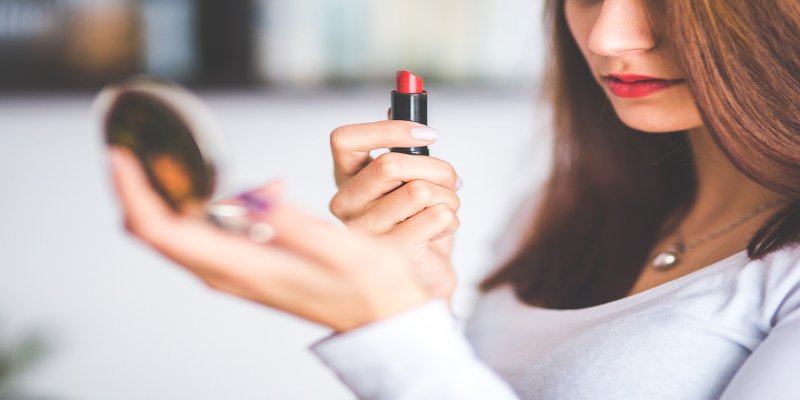Why Do You Absolutely Need A Sunscreen And How To Pick The Best One
- Gayatri
- Tuesday | 13th April, 2021

Summer has made its comeback; the harsh sun is shining in all its glory. While, staying in is definitely anyone’s best bet now, considering the heat waves and Covid surge, it cannot be an option for us all. While water will keep the heat waves away and masks and sanitiser will keep the Coronavirus at bay, you will absolutely need sunscreen to protect your skin from sun damage. Experts and dermatologists cannot stress more the importance of incorporating sunscreen in your everyday skincare routine regardless of the season. But it becomes all the more important during summers.

Down below are the ultimate benefits of an SPF and how to pick the best one for yourself:
1. Risk of Skin Cancer
Sunscreen protects your skin and reduces your risk of developing skin cancer and skin pre-cancers.Sunscreen protects your skin and reduces your risk of developing skin cancer and skin pre-cancers. Applying SPF in conjunction with other sun protection behaviors - like wearing dark clothing and sunglasses - reduces the harmful effects of sun exposure. In fact, the Skin Cancer Foundation claims that applying sunscreen with an SPF factor of 15 reduces your chance of developing squamous cell carcinoma by 40% and your melanoma risk (the deadliest skin cancer) by 50%.
2. Say NO to sunburn
Did you know that sunlight actually consists of two types of harmful rays, UVA and UVB rays? UVA rays (also used in tanning booths) are mainly linked to long term skin damage like the formation of wrinkles, and are also associated with some skin cancers. It’s UVB rays, however, which are responsible for sunburn and are thought to cause most skin cancers. Not only are sunburns painful, they have a direct link to the most deadly types of cancer. According to Healthline: “Even a single sunburn can increase a person’s risk of skin cancer. This is because when the skin absorbs ultraviolet radiation from sunlight, it can damage the genetic material in skin cells.” Thankfully, sunscreen defends the skin against UV rays by absorbing, reflecting or scattering sunlight.
3. Bye Inflammation & Redness
Too much time in the sun will result in sunburn, severe skin reddening and inflammation of the skin. “The ultraviolet rays from the sun damage the skin, which turns red as the body directs more blood to the affected area to repair the damage.”
4. Wrinkle and fine lines will be at bay
When it comes to developing wrinkles, fine lines and crow’s feet, one of the most effective preventative formulas is sunscreen. Lengthy exposure to UVA rays prematurely ages your skin and results in the loss of collagen and skin elasticity. In fact, approximately up to 90% of visible signs of aging are caused by sun damage. By introducing SPF into your daily skin care routine, you’re warding off the early signs of aging with minimal effort.
5. Avoid blotchy skin & hyperpigmentation
Uneven skin pigmentation (or hyperpigmentation) refers to parts of the skin becoming discolored or darkening in an inconsistent way. This can be hereditary, but it can also be caused by sun exposure. Blotchy skin or dark spots may spring up on the face, hands and other parts of the body regularly exposed to the sun.
The good news? There is a simple way to avoid dark spots (as well as sunburn, wrinkles and skin cancer) - and the solution is wearing sunscreen rain or shine, not just in summer.
6. Stop DNA Damage
Scientific studies have found that sunlight induces DNA damage and can trigger skin carcinogenesis and photoaging. Studies state: “Many of the deleterious human health effects that result from sunlight exposure are associated with a chain of events that begins with the formation of DNA damage. These lesions can lead to inflammatory and immunosuppressive processes in the epithelial tissue as well as accelerated aging and tumor development.”
Clearly, sun exposure can have a profound effect and potentially cause premature skin aging, skin cancer, and many other skin changes. If you think you can avoid the sun’s rays in winter or by sitting in the office, you might be surprised to learn about these next situations when you should still wear SPF.

What SPF Is Best For Everyday Use?
When choosing sunscreen, look for the phrase “broad spectrum.” This description signals that the formula protects against both UVA and UVB rays. Next, check the sun protection factor (SPF) number that rates the sunscreen’s effectiveness in blocking UV rays. For your best defence, select a sunscreen with at least an SPF of 30.
Pick formulas that are free from silicones and brimming with natural, organic botanicals and active ingredients to deliver targeted skin benefits, all while helping you stay protected from sun damage, every day.

If You Like This Story, Support NYOOOZ
Your support to NYOOOZ will help us to continue create and publish news for and from smaller cities, which also need equal voice as much as citizens living in bigger cities have through mainstream media organizations.


.png)
1.png)
.png)
.png)





